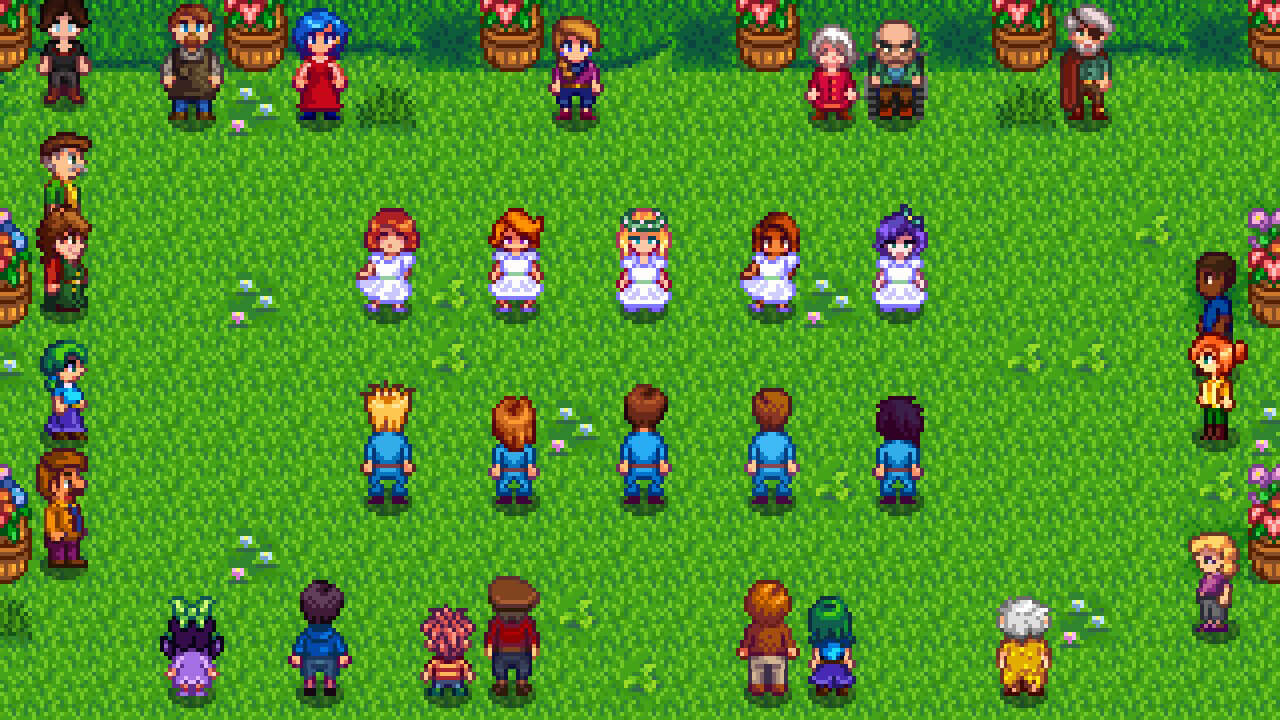Title: Stardew Valley
Available On: PS4, PC,
Developer: Eric Barone
Publisher: Chucklefish Games
Genre: Role-playing Game Farming Simulator
Official Site: https://stardewvalley.net
Release Date: 02-26-16 (Steam), 12-13-16 (PS4,
Where To Buy: PSN Store,
Back on the Gamecube, a little game call Animal Crossing came across my lap and quickly consumed an excessive portion of my life. Never before had a game captured my attention with tasks as simple as decorating a house, tending to my neighborhood, collecting fish and bugs, and even pulling weeds around the town as the seasons changed. So you can imagine my surprise when that same feeling of enjoyment in the menial came from a $15 indie game.
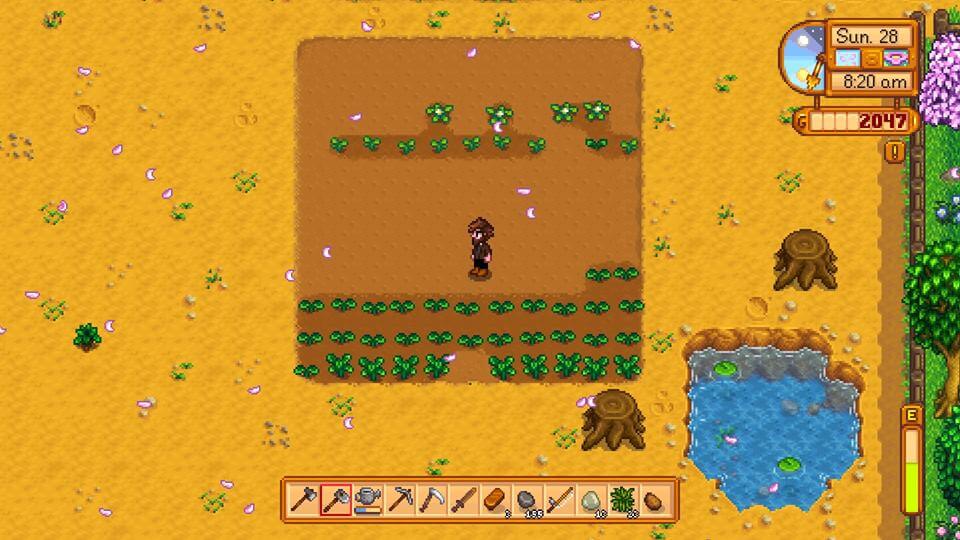
Stardew Valley is a 16-bit top-down RPG where the player gets fed up with the meaninglessness of city life, boards a bus, and takes over the farm handed down to him by his grandfather. When you show up, the land is overgrown and rugged, but, with the help of some friendly townsfolk, quickly becomes a fertile landscape. But upon your arrival, you figure out that the Joja Corporation is trying to take over and modernize the simple town, running the Mom and Pop shops out. With some hard work and a lot of patience, you can help keep them afloat and Stardew Valley alive.
The gameplay can be as simple or as complex as you make it. Each day has a timeframe to do work, where you wake up at 6 a.m. and have to be back in bed by around 1 a.m. In addition to this, the player has an energy bar, where only a certain amount of effort can be put forth, such as cutting down trees, breaking up rocks, plowing the land, and watering plants. Once the day’s work has been done, the rest of the day can be spent talking to the town’s NPCs, exploring the mines, and planning the next day’s work.
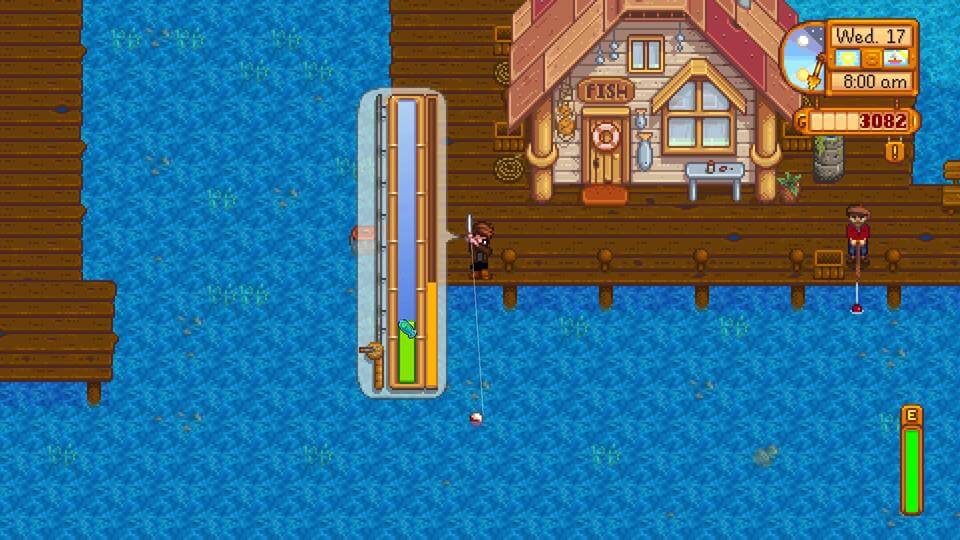
Interestingly, there doesn’t seem to be any real time rush, and players can take as long as they need to play. In fact, the game tends to try to slow the player down, as I found working my way through the mines where I was quickly overwhelmed and ran out of energy. In a world where every game tends to try to make the player move faster and faster, it felt strange to have a game basically tell me to slow down. That being said, it did make me feel like I wasn’t stressed by the changing of seasons or when things went wrong.
This also gives you time to learn new skills, build out your farm to your liking, produce whatever crops you like, and build relationships with your neighbors, some of whom you can even marry and settle down with. Keep in mind, none of this can be accomplished overnight, but rather takes a significant amount of time and focus to achieve.
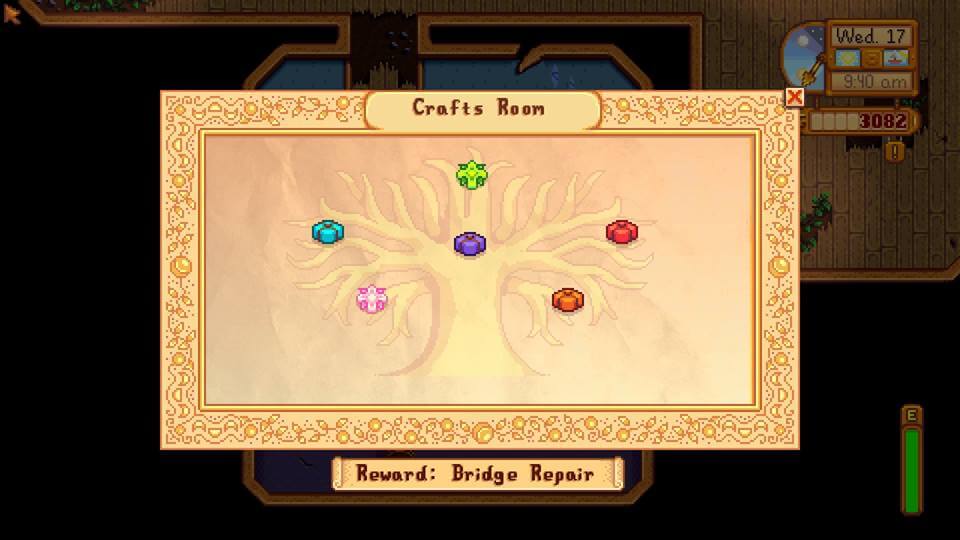
Though the story isn’t overwhelming, it is fairly real. When the corporation moves in town and starts trying to take customers, there is a genuine sense of despair for the shop owners who willingly admit that they’re on borrowed time. And the game doesn’t give an “if you accomplish these tasks then you’ll save the town!” feeling, but instead lets common sense push the player to push harder and trade more with the small businesses in town.
What is probably the best thing about the game is the atmosphere it creates. The map is fairly evenly divided between land that the player can cultivate as they see fit and houses, towers, and docks to explore. The music that plays in the background is consistently relaxing and folky, the colors change as the seasons pass from spring to summer to fall to winter, and time really feels like it passes slowly. Nothing about this game pushes you to rush and beat it, but rather goads the player into taking their time, make the decisions they think are best, and build the relationships with the people they want.
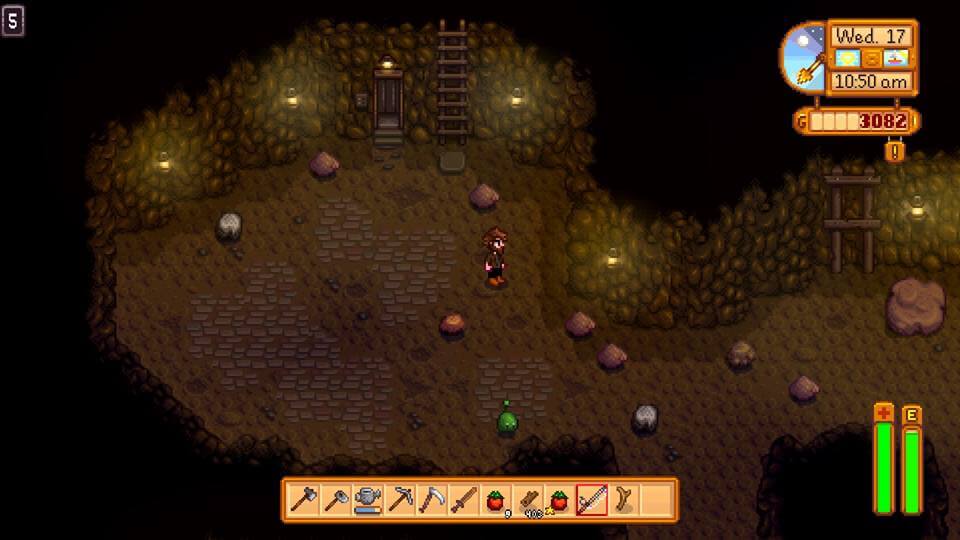
In fact, the thing I probably liked least about the game is the combat sections. While I felt it had its place in the game, it didn’t seem to mesh with everything else the game was trying to convey. Even the magician, blobs, insects and mysterious creatures residing in the abandoned community center felt like they made more sense than needing to descend numerous floors in the mine and kill things.
Stardew Valley was a fuller experience than I could ever have expected. It gave me the reminiscent feelings of needing to get things done so my town could be successful. I got to play the game as myself and become the best farmer that town had ever seen. For $15, Stardew Valley gave me an experience that made me slow down and enjoy myself. I haven’t finished it, but it’s a game a constantly feel a call to come back to.
- Gameplay: Simple, slow, but definitely enjoyable
- Graphics: 16-Bit but remarkably beautiful
- Sound: Wonderful, relaxing music
- Presentation: Easy-going atmosphere, creative writing, fairly real storytelling
[review]

